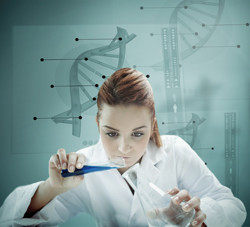United biotechnology front in Europe
In the current global scenario in biotechnology, required resources are highly expensive and diverse due to an overlapping of disciplines in research. As such, the commercialisation of research into business could be fostered by asset sharing of facilities and expertise across European bioregions. Europe has bioregions with differing strengths and resources, including Barcelona, Berlin, Debrecen, Paris and the Piemonte region. BIO-CT members carried out a strengths, weaknesses, opportunities and threats (SWOT) analysis in all bio communities. Resources, gaps in resources and complementary skills, among other relevant factorswere identified and a joint action plan developed. Project scouting and maturation, reversing brain drain and the sharing of facilities and resources were to be addressed for sustainable economic growth. SWOT analysis showed that Barcelona, Berlin and Paris were rich in assets that included facilities and expertise. Turin is strong in the imaging sector, whereas Debrecen has expertise in clinical trials, testing and certification. Bioclusters could be formed, based on strategic positioning, for optimal asset sharing and partnerships and mutual exchange. The joint action plan also took into consideration factors like technology transfer and patenting issues that may arise from such cooperation. For this purpose, a common European tool for European project maturation would be formulated for delocalised knowledge sharing and support. Two existing instruments — 'Berlin-Brandenburg's top 50 instruments' and the 'Genopole Enterprises tool of Paris region' — would be used as models. To retain and attract skilled expertise, the creation of a 'Pool of biomanagers' database was proposed that would contain the profiles of senior experts, skilled professionals and more. Six expert profiles required for project planning, drug development and biomedical technologies were identified for optimal early stage company development. Profiles were that of chief executive officer (CEO), business development, chief operating officer (COO), regulatory affairs, pre-clinical development, and chemistry, manufacturing and controls (CMC). This database will facilitate standardised and integrated profiles of biomanagers across Europe. BIO-CT members reviewed the critical facilities needed regionally for pre-clinical to clinical phase development. Across European clusters, specialised facilities and resources were assessed for complementary and synergistic value. The project team developed a self-sustainable market-based sharing model based on information from facilities, companies and stakeholders. Recommendations included developing shared facility schemes, public financing and support to create state-of-the-art facilities that are complementary to the other specialisations. Successful outcomes as a result of recommendations from BIO-CT could place Europe ahead in the global biotechnology sector due to the optimal sharing of resources and expertise.

